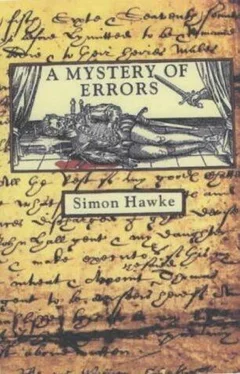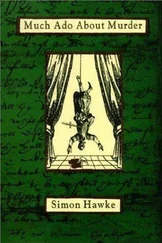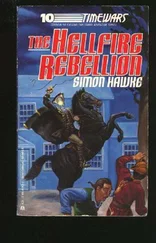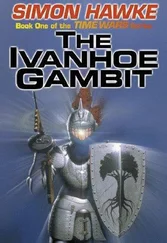Simon Hawke - A Mystery Of Errors
Здесь есть возможность читать онлайн «Simon Hawke - A Mystery Of Errors» весь текст электронной книги совершенно бесплатно (целиком полную версию без сокращений). В некоторых случаях можно слушать аудио, скачать через торрент в формате fb2 и присутствует краткое содержание. Жанр: Исторический детектив, на английском языке. Описание произведения, (предисловие) а так же отзывы посетителей доступны на портале библиотеки ЛибКат.
- Название:A Mystery Of Errors
- Автор:
- Жанр:
- Год:неизвестен
- ISBN:нет данных
- Рейтинг книги:3 / 5. Голосов: 1
-
Избранное:Добавить в избранное
- Отзывы:
-
Ваша оценка:
- 60
- 1
- 2
- 3
- 4
- 5
A Mystery Of Errors: краткое содержание, описание и аннотация
Предлагаем к чтению аннотацию, описание, краткое содержание или предисловие (зависит от того, что написал сам автор книги «A Mystery Of Errors»). Если вы не нашли необходимую информацию о книге — напишите в комментариях, мы постараемся отыскать её.
A Mystery Of Errors — читать онлайн бесплатно полную книгу (весь текст) целиком
Ниже представлен текст книги, разбитый по страницам. Система сохранения места последней прочитанной страницы, позволяет с удобством читать онлайн бесплатно книгу «A Mystery Of Errors», без необходимости каждый раз заново искать на чём Вы остановились. Поставьте закладку, и сможете в любой момент перейти на страницу, на которой закончили чтение.
Интервал:
Закладка:
The ensign hoisted in the turret an hour before the start of each performance was fluttering in the cool, late afternoon breeze as they went through the gate, past all the groundlings who had already arrived long since to jostle for the best positions in the rush-strewn yard. The hawkers were selling their refreshments and the trumpets were blowing the three blasts of the fanfare, signaling that the play was about to start as they mounted the stairs up to the expensive private boxes in the upper gallery, which were all screened off on the sides, blocking off all views except the one directly to the front. And therein, the much-lauded Mr. Anthony Gresham awaited her.
Having already formed a rather low opinion of him, Elizabeth had somehow expected his appearance to live down to it. She had imagined that he would be fat and unattractive, and probably with pockmarked skin. Instead, she was surprised to find that he was quite good looking, in a roguish sort of way, with well-formed, strongly defined features, a good complexion, a neatly trimmed black beard, and a full head of dark hair that he took some trouble to keep well groomed. He was also younger than she had expected, in his early to mid-twenties, and appeared to be quite fit.
“Miss Darcie,” he said, rising to greet her. He bowed over her hand and brushed it with his lips. “How good of you to come on such short notice. ‘Twas dreadfully rude of me, I know, to present the invitation in such a fashion, but under the circumstances, quite unavoidable, I fear. I hope you will find it in your heart to forgive me.”
Taken aback a bit by his unexpected remarks and apparently sincere, apologetic tone, Elizabeth could think of nothing else to say or do but nod. He led her to her seat, which he had thoughtfully provided with several pillows, and offered to pour her some red wine. She accepted.
The play, in the meantime, had begun. As the first actor stepped out on stage to recite the prologue, Elizabeth recognized the play as one she’d seen before, The Honorable Gentleman, a rather tepid comedy of manners written by Greene or one of his many imitators, she could no longer remember which. The way these poets would often take older works and then adapt them to the stage, changing them around and frequently borrowing from other sources, as well as one another, it was sometimes difficult to tell who the original author was. And in the case of this play, it really didn’t matter. The intent of the production was to lampoon the so-called, rising “middle class,” the new merchant gentry who were often painted with a broad brush, in strokes that were anything but flattering, as bumbling, greedy, selfish, and duplicitous, often cuckolded fools. In other words, men just like her father. It was certainly a peculiar choice for Gresham to select.
However, as Will Kemp, the speaker of the prologue, delivered his lines with his usual leering and grimacing posturings to the audience, it became apparent that Anthony Gresham was not in the least bit interested in the play. He made a pretence of watching the stage, but spoke to her, instead.
“You are aware, of course, that our families intend that we should marry,” he said, without preamble. It sounded more like a statement than a question, so Elizabeth made no attempt to answer. He glanced over at her briefly, saw that she was watching him silently, and raised an eyebrow in expectation.
“I have recently been made aware of it,” she replied, in an unemotional tone.
He nodded and returned his attention to the stage, though it was clear that he had no real interest in the play. “Indeed, I was rather recently made aware of it myself. It was not, regrettably, a matter upon which I had ever been consulted. In fact, until only a short while ago, your name was not even known to me.” He paused, as if choosing his words carefully. “And I would, perhaps, not be amiss in thinking that the prospect of marriage to a man whom you had never even met did not quite fill you with… eager anticipation?”
Elizabeth realized that things were not quite going the way she’d planned. What she had hoped for was an opportunity to create a bad impression and thereby discourage Mr. Gresham’s interest. Instead, it was beginning to appear as if he had no interest. And she found that very interesting, indeed.
“I had always hoped,” she said, “to fall in love with the man whom I would marry.”
He glanced at her appraisingly and smiled faintly. “Ah. Love. Indeed. I quite understand. And as unfashionable as it may seem, I believe that there is a great deal to be said for love. Would you not agree?”
“I would.”
“Good. Then in this one respect, at least, we are of like mind. You would prefer to love the man you were to marry, and I…”
He turned to look directly at her. “I would prefer to marry a woman that I loved.”
Elizabeth abruptly realized what the purpose of this meeting was, and she caught her breath, scarcely able to believe in her good fortune. “And… is there such a woman?” she asked, meeting his gaze.
He nodded once again. “There is.” When she did not respond immediately, he added, “And is there such a man in your life?”
She shook her head. “No. At least, not yet.”
“Ah. Pity. Doubtless, there shall be before long.”
“Let us understand one another, Mr. Gresham, and speak plainly,” she said. “You do not want this marriage. Anymore than I do.”
“No, Miss Darcie,” he said. “I do not. And ‘twas my hope that you would feel the same way. As, it would appear, you do.”
“I do, indeed, Mr. Gresham. But I mean no offence toward you.”
“Indeed, nor I toward you,” Gresham replied, visibly more at ease now. “I was concerned that my desire to break off this betrothal might have been painful or distressing to you.”
“The marriage was something that my father wanted,” she said, “for reasons that had more to do with his ambitions than with mine.”
Gresham nodded. “Aye. Our situations seem much alike. ‘Twas my father who wanted this, as well.” He smiled. “Apparently, the family fortune has been somewhat depleted by some unwise investments he had made.”
“So he seeks to make a wiser one through you,” Elizabeth replied, with a smile.
Now that she saw which way the wind blew, she felt a great deal more comfortable with Gresham. Her opinion of him had improved, somewhat, as well. She could now see why he had acted as he did. He could not very well have revealed the purpose of this meeting in his invitation. Not knowing how she felt, he had needed to be circumspect, and issue the invitation in such a manner that her family would have little or no time to prepare for it and interject themselves in any way. This was a matter that had needed to be discussed in confidence. Nor could she fault him for wanting to break off the betrothal. He was in love with someone else. What better reason could there be? She had wanted to find a way to break it off herself, because she was not in love with him.
Her sympathies became aroused toward him and she started to look upon him with more understanding. He was not a bad sort, after all. Without his cooperation, there could not have been a marriage. He had not needed to meet with her like this. He could have simply refused to go through with it. He would have raised the ire of his father and perhaps risked being disinherited, but he certainly had not needed to consider her feelings in the matter. And yet, he had done just that. He had wanted to speak with her, prepare her, make some explanation. In this respect, he had comported himself in every way like a true gentleman. Even an honorable one, she thought, smiling to herself at the irony, considering the play being acted below, to which neither of them was paying the least bit of attention anymore.
Читать дальшеИнтервал:
Закладка:
Похожие книги на «A Mystery Of Errors»
Представляем Вашему вниманию похожие книги на «A Mystery Of Errors» списком для выбора. Мы отобрали схожую по названию и смыслу литературу в надежде предоставить читателям больше вариантов отыскать новые, интересные, ещё непрочитанные произведения.
Обсуждение, отзывы о книге «A Mystery Of Errors» и просто собственные мнения читателей. Оставьте ваши комментарии, напишите, что Вы думаете о произведении, его смысле или главных героях. Укажите что конкретно понравилось, а что нет, и почему Вы так считаете.












